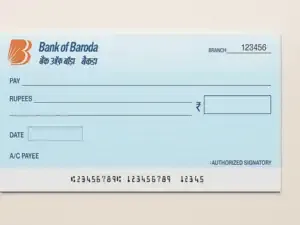In a deftly-executed fraud, an officer at a major public sector bank had cleared 47 cheques with forged signatures to be encashed. Out of these, 32 cheques were paid to third parties, making it extremely challenging to recover the money. The other 15 were account payee cheques and so the money could be recovered.
What’s really shocking about this fraud is that it went unnoticed by both the customers and the bank for three whole months. Because of this massive fraud, many customers of the bank suffered huge financial losses and ended up filing complaints with the bank first and then with the court.
The bank claimed that all the necessary procedures and formalities for processing a cheque were followed and claimed they were not liable for the losses incurred by the customers. However, the Kerala High Court rejected this argument of the bank and ordered the bank to give full refund to the affected customers with 6% per annum interest.
The case was originally filed against Vijaya Bank but post merger, Bank of Baroda fought the case.
The Vigilance Department officer who investigated this case, said that the signatures on the cheques in question, which were claimed to be from the authorised signatories of customers, varied from the specimen signatures held by the Bank. In some cases, the specimen signatures weren’t even available at the Bank. This report of the Vigilance Department was acquired by the affected bank customers through the Right To Information Act, 2005 and presented as evidence before the Court.
Bank of Baroda refused to accept the Vigilance Department report. They claimed that the officer who prepared the report did not follow the prescribed procedures and so cannot be trusted. However, the Kerala High Court rejected the bank’s contention.
The Bank of Baroda’s lawyers also argued before the High Court that that the forgery of customer signatures was carried out by someone well acquinted with the customers and therefore the bank shouldn’t be held responsible. The Kerala High Court rejected this argument of the bank.
Check out the details below to understand this case and find out why the Kerala High Court decided that the bank is liable for clearing the fraudulent cheques and ordered the bank to fully refund the affected customers along with 6% interest per annum.
Also read: Rs 4.58 crore stolen from ICICI bank customers: Broke FDs, created overdraft and personal loan; how relationship manager executed fraud
Kumar Saurabh Singh, Partner at Khaitan & Co, says: “This judgment of the Kerala High Court follows a long line of precedents protecting customers’ interest in cases where banks have allowed cheques bearing forged signatures to be encashed. In these kinds of cases, the burden of proof is on the customer alleging negligence against the concerned bank. However, a bank cannot defend against such an allegation by claiming that the customer himself was negligent except in the limited circumstances where the customer himself facilitates such a transaction or fails to inform the bank even after having knowledge of such transaction.
In this case, the Kerala High Court has further clarified that a Bank cannot successfully defend against a customer’s allegation of the bank’s negligence by claiming that due process on the part of the bank was followed when the suspect cheques were presented for encashment.
However, it is pertinent to note here that the customer in this case had procured the incident report prepared by the bank’s vigilance officer confirming that the cheques were indeed forged by way of an application made under the Right to Information Act, 2005. In light of the foregoing, it is pertinent for customers and banks alike to observe a higher standard of alertness to prevent encashment of forged cheques to safeguard the interests of both parties.
It would now be incumbent on the banks to have greater vigilance mechanisms at their end while clearing the cheques to avoid any liability on account of negligent conduct.”
Sanjay Gupta, senior partner, Dentons Link Legal, says: “The judgment is critical in various aspects and has significant impact on the bank account holders as stated below:
Enhanced Protection from Loss:
The ruling of the Kerala High Court affirms that the banks cannot escape from the liability by shifting the burden on consumers for the latter’s negligent acts such as handling of cheque books without due care or not identifying the veracity of signatures. Through this judgment the High Court has affirmed that account holders can be entitled to reimbursement for the losses caused by the bank’s failure/ negligence in verifying the signatures on cheques.
Burden of Proof:
The Supreme Court of India had in multiple judgments laid down the mandate of banks in case of forged signatures that the bank loses its mandate to encash a cheque if the signature is found to be forged. However, this judgment of the High Court has gone a step ahead by holding the bank responsible in case it proceeds to encash the cheque with forged signatures.
The ruling puts the burden on the banks to ensure proper due diligence in the verification process while encashing cheques. The burden on the account holders has been limited to the extent that they should establish that the signatures are forged and not proper. Once the signatures are established to be forged, the liability completely shifts on the bank which has encashed the cheque. The bank cannot use the defense that it followed due process and that it is the responsibility of the account holders to come clean with proper signatures and that the forgery was committed by some other party.
Pushkraj S Deshpande, Associate Partner, ALMT Legal, says: Customers cannot be held liable for amounts withdrawn on forged cheques unless there is clear evidence that they adopted or endorsed the forgery. In fact, if prima facie forgery is shown, the burden shifts on the banks to prove otherwise. The bank has no authority to pay on a forged cheque. However, the consumers should report discrepancies or suspected fraud immediately upon discovery.
Further, internal reports (like the vigilance reports in this case) can be used as admissible evidence against the bank, unless the bank proves they are flawed. Thus, such instances push the banks to ensure that internal audit and compliance reports are robust and, if challenged, defensibly sound.
Manini Roy, Associate Partner, TAS Law, says: This judgement has severalimplications for Consumers, some of them are:
Advocate Nandini Bhardwaj, Senior Manager- Legal, Uniqey by JJ tax, says: The recent judgment rendered by the Kerala High Court in RFA Nos. 401, 399, 402, 404, and 406 of 2015 carries significant implications for bank customers across the country. The Court unequivocally held that the encashment of cheques bearing forged signatures of an account holder’s authorised signatory constitutes negligence on the part of the bank, thereby rendering it liable to compensate the customer for the resultant loss.
Crucially, the Court reaffirmed the settled legal principle that a bank is not authorised to honour a cheque bearing a forged signature. The burden lies squarely on the bank to establish the genuineness of the signature or demonstrate the customer’s knowledge of or involvement in the fraud. The mere fact that a customer may have failed to secure the chequebook properly does not exonerate the bank from liability.
This judgment thus reinforces the fiduciary duty of care that banks owe to their customers in managing accounts and safeguarding against unauthorised transactions. It further underscores that internal fraud or procedural lapses in verification cannot be invoked as a defence by banks to escape accountability.
Nihal Bhardwaj, Counsel, SKV Law Offices, says: This recent Kerala High Court judgment is a strong reminder that banks cannot afford to be careless when dealing with customer accounts. The Court held the bank responsible for encashing cheques that had forged signatures, reinforcing the principle that customers have a right to expect due diligence from their bank.
This gives consumers confidence that they can seek legal recourse if a bank fails in its duty. The judgment also makes it clear that once forgery is shown, the burden is on the bank to prove that it acted properly. It sends a clear message to banks to strengthen their internal checks and take every precaution to prevent fraud.
Alay Razvi, Managing Partner, Accord Juris: This ruling reinforces and reaffirms the legal principle that:
There is a growing tendency wherein banks try to escape their liability without taking reasonable precautions and due diligence in case of any alleged loss, banks try to put entire blame on the customer.
This judgment will compel banks to take more precautions while encashing cheques wherein banks will ensure that all details in cheques like account number, name of payee, signature of payor etc. match with the KYC records of the customer maintained by banks.
This judgment has again reiterated that consumer rights are to be protected from any sort of negligence and recklessness on the part of the service provider.
Sweta Upadhyay, Senior Associate, ALMT Legal, says: This judgment reinforces consumer protection in banking relationships and underscores the bank’s duty to act with care and diligence. It is a reminder that banks must own their role as custodians of public funds and cannot shift blame to customers for failures in their verification process.
The Banks need to:
From the judgment, it is clear that the bank will be solely responsible for reimbursing the consumers for their losses resulting from its negligence. This increases the financial burden on the banks. Additionally, the consumers may claim interest (as in the present case) thus adding to the financial liability on the banks.
What’s really shocking about this fraud is that it went unnoticed by both the customers and the bank for three whole months. Because of this massive fraud, many customers of the bank suffered huge financial losses and ended up filing complaints with the bank first and then with the court.
The bank claimed that all the necessary procedures and formalities for processing a cheque were followed and claimed they were not liable for the losses incurred by the customers. However, the Kerala High Court rejected this argument of the bank and ordered the bank to give full refund to the affected customers with 6% per annum interest.
The case was originally filed against Vijaya Bank but post merger, Bank of Baroda fought the case.
The Vigilance Department officer who investigated this case, said that the signatures on the cheques in question, which were claimed to be from the authorised signatories of customers, varied from the specimen signatures held by the Bank. In some cases, the specimen signatures weren’t even available at the Bank. This report of the Vigilance Department was acquired by the affected bank customers through the Right To Information Act, 2005 and presented as evidence before the Court.
Bank of Baroda refused to accept the Vigilance Department report. They claimed that the officer who prepared the report did not follow the prescribed procedures and so cannot be trusted. However, the Kerala High Court rejected the bank’s contention.
The Bank of Baroda’s lawyers also argued before the High Court that that the forgery of customer signatures was carried out by someone well acquinted with the customers and therefore the bank shouldn’t be held responsible. The Kerala High Court rejected this argument of the bank.
Check out the details below to understand this case and find out why the Kerala High Court decided that the bank is liable for clearing the fraudulent cheques and ordered the bank to fully refund the affected customers along with 6% interest per annum.
Kerala High Court raised these three points of determination for this bank cheque fraud case
According to the order of the Kerala High Court dated June 13, 2025, here’s what the court said: The points that arise for determination are: -- On whom lies the burden of proof regarding the alleged forgery and the negligent encashment of cheques?
- Has the burden of proof been discharged by the party upon whom it rests?
- Is the finding of the trial court that the plaintiffs (customers) have failed to prove their cases, sustainable on the materials on record?
Kerala High Court says as per this Supreme Court judgement Banks are liable for cases of fraud with consumer
The Kerala High Court said: “The Bank has a contention that the forgery was committed by one of the employees of the plaintiffs, and the Bank could not be made liable for the same. Such contention cannot stand in the teeth of the law laid by the Apex Court on the liability of a Banker on encashment of a forged cheque. The law has been elucidated by the Apex Court (Supreme Court) in Canara Bank v. Canara Sales Corporation and Ors. [1987 (2) SCC 666].”In the above quoted Canara Bank case, the Supreme Court said:
- “When a cheque duly signed by a customer is presented before a bank with whom he has an account there is a mandate on the bank to pay the amount covered by the cheque. However, if the signature on the cheque is not genuine, there is no mandate on the bank to pay.
- “The bank, when it makes payment on such a cheque, cannot resist the claim of the customer with the defence of negligence on his part such as leaving the cheque book carelessly so that third parties would easily get hold of it. This is because a document in cheque form, on which the customer's name as drawer is forged, is a mere nullity. The bank can succeed only when it establishes adoption or estoppel.”
- “..... For negligence to constitute an estoppel it is necessary to imply the existence of some duty which the party against whom estoppel is alleged owes to the other party. There is a duty of sorts on the part of the customer to inform the bank of the irregularities when he comes to know of it. But by mere negligence one cannot presume that there has been a breach of duty by the customer to the bank.”
- The customer should not by his conduct facilitate payment of money on forged cheques. In the absence of such circumstances, mere negligence will not prevent a customer from successfully suing the bank for recovery of the amount.”
Kerala High Court final judgement
The judgement read as follows: “The appeals are allowed. The decree and judgment of the trial court are set aside. The suits will stand decreed allowing the plaintiffs (customers) to realise the amounts claimed in the plaints, with interest at the rate of 6% per annum from the date of suit till recovery. The plaintiffs-appellants shall be entitled for costs throughout.”Also read: Rs 4.58 crore stolen from ICICI bank customers: Broke FDs, created overdraft and personal loan; how relationship manager executed fraud
Kerala High Court also upheld Vigilance Department’s report about this bank cheque fraud
The Kerala High Court said:- “Admittedly, Exhibit A1 and A2 are copies of the investigation reports by the Vigilance officer of the defendant. The genuineness of Exts.A1 and A2 is not disputed. Exts.A1 and A2 reports are to the effect that the signatures on the relevant cheques, purported to be that of the authorised signatory, vary with the specimen signatures available in the Bank, and that in certain cases, even the specimen signatures were not available in the Bank.
- The contention of the defendant is that the officer who prepared the reports did not follow the procedures prescribed, and therefore, they cannot be relied upon. What are the procedures that were not adhered to by the concerned officer, rendering the documents unreliable or unacceptable, have not been pleaded or proved.
- The learned counsel for the Bank would argue that it was incumbent upon the plaintiffs to have examined the maker of Exts.A1 and A2. We are unable to agree with the learned counsel.
- When the Bank claimed that what is stated in their reports, which are before the Court, are not correct and cannot be relied upon, it was for them to prove the contention.
- The Bank ought to have established that the findings and conclusions arrived at in Exts.A1 and A2 reports are not correct. The burden was necessarily upon the Bank. No attempt was made to discharge the same.
Kerala High Court used these legal reasonings to determine bank’s liability in this cheque fraud case
According to the order of the Kerala High Court dated June 13, 2025, here’s what the court said:- We have already noticed supra (above) that the plaintiffs' case that the signatures in the cheques were not those of their authorised signatories remained unchallenged. Exhibit A1 and A2 reports (Vigilence department report), coupled with the evidence of physical witness 1(auditor), and the finding as above, would prima facie prove that the Bank had encashed cheques containing forged signatures of the authorised signatories of the plaintiffs.
- The materials available with the Bank viz. the cheques in question, the specimen signatures etc. are not produced before the court. Non-production of the same may not be of much significance since the Bank itself does not have a contention that the signatures were not forged. Again, as noticed, Exhibits A1 and A2 speak otherwise. On the above discussions, we have no hesitation in finding that the Bank was negligent in having encashed the plaintiffs cheques with the forged signatures of its authorised signatories.
- The incidents in relation to the cheques in question occurred within a period of three months. As soon as it was detected by the plaintiffs, steps were taken. It could not be established, nor was it attempted to prove, that the plaintiffs (customer) had knowledge of the forgery prior to its encashment. Hence it can only be concluded that the Bank is liable for having effected payment of the forged cheques.
What is the significance of this judgement for consumers?
ET Wealth Online has asked various lawyers about what might be the significance of this judgement for bank consumers; here’s what they said:Kumar Saurabh Singh, Partner at Khaitan & Co, says: “This judgment of the Kerala High Court follows a long line of precedents protecting customers’ interest in cases where banks have allowed cheques bearing forged signatures to be encashed. In these kinds of cases, the burden of proof is on the customer alleging negligence against the concerned bank. However, a bank cannot defend against such an allegation by claiming that the customer himself was negligent except in the limited circumstances where the customer himself facilitates such a transaction or fails to inform the bank even after having knowledge of such transaction.
In this case, the Kerala High Court has further clarified that a Bank cannot successfully defend against a customer’s allegation of the bank’s negligence by claiming that due process on the part of the bank was followed when the suspect cheques were presented for encashment.
However, it is pertinent to note here that the customer in this case had procured the incident report prepared by the bank’s vigilance officer confirming that the cheques were indeed forged by way of an application made under the Right to Information Act, 2005. In light of the foregoing, it is pertinent for customers and banks alike to observe a higher standard of alertness to prevent encashment of forged cheques to safeguard the interests of both parties.
It would now be incumbent on the banks to have greater vigilance mechanisms at their end while clearing the cheques to avoid any liability on account of negligent conduct.”
Sanjay Gupta, senior partner, Dentons Link Legal, says: “The judgment is critical in various aspects and has significant impact on the bank account holders as stated below:
Enhanced Protection from Loss:
The ruling of the Kerala High Court affirms that the banks cannot escape from the liability by shifting the burden on consumers for the latter’s negligent acts such as handling of cheque books without due care or not identifying the veracity of signatures. Through this judgment the High Court has affirmed that account holders can be entitled to reimbursement for the losses caused by the bank’s failure/ negligence in verifying the signatures on cheques.
Burden of Proof:
The Supreme Court of India had in multiple judgments laid down the mandate of banks in case of forged signatures that the bank loses its mandate to encash a cheque if the signature is found to be forged. However, this judgment of the High Court has gone a step ahead by holding the bank responsible in case it proceeds to encash the cheque with forged signatures.
The ruling puts the burden on the banks to ensure proper due diligence in the verification process while encashing cheques. The burden on the account holders has been limited to the extent that they should establish that the signatures are forged and not proper. Once the signatures are established to be forged, the liability completely shifts on the bank which has encashed the cheque. The bank cannot use the defense that it followed due process and that it is the responsibility of the account holders to come clean with proper signatures and that the forgery was committed by some other party.
Pushkraj S Deshpande, Associate Partner, ALMT Legal, says: Customers cannot be held liable for amounts withdrawn on forged cheques unless there is clear evidence that they adopted or endorsed the forgery. In fact, if prima facie forgery is shown, the burden shifts on the banks to prove otherwise. The bank has no authority to pay on a forged cheque. However, the consumers should report discrepancies or suspected fraud immediately upon discovery.
Further, internal reports (like the vigilance reports in this case) can be used as admissible evidence against the bank, unless the bank proves they are flawed. Thus, such instances push the banks to ensure that internal audit and compliance reports are robust and, if challenged, defensibly sound.
Manini Roy, Associate Partner, TAS Law, says: This judgement has severalimplications for Consumers, some of them are:
- Absolute Protection Against Forged Cheques: The Court emphatically confirms that any cheque bearing a forged signature is void ab initio, and the bank that honors it remains fully liable for the resulting loss. Even where forgery originates from the bank’s own employee, the customer’s carelessness—such as misplacing a cheque book—cannot be invoked as a defence.
- Burden of Disputing Internal Reports: Should a bank’s internal vigilance or investigation report indicate forgery or institutional negligence, and the bank contests that finding, it must demonstrate in court precisely why the report is unreliable. Mere procedural compliance is insufficient.
Advocate Nandini Bhardwaj, Senior Manager- Legal, Uniqey by JJ tax, says: The recent judgment rendered by the Kerala High Court in RFA Nos. 401, 399, 402, 404, and 406 of 2015 carries significant implications for bank customers across the country. The Court unequivocally held that the encashment of cheques bearing forged signatures of an account holder’s authorised signatory constitutes negligence on the part of the bank, thereby rendering it liable to compensate the customer for the resultant loss.
Crucially, the Court reaffirmed the settled legal principle that a bank is not authorised to honour a cheque bearing a forged signature. The burden lies squarely on the bank to establish the genuineness of the signature or demonstrate the customer’s knowledge of or involvement in the fraud. The mere fact that a customer may have failed to secure the chequebook properly does not exonerate the bank from liability.
This judgment thus reinforces the fiduciary duty of care that banks owe to their customers in managing accounts and safeguarding against unauthorised transactions. It further underscores that internal fraud or procedural lapses in verification cannot be invoked as a defence by banks to escape accountability.
Nihal Bhardwaj, Counsel, SKV Law Offices, says: This recent Kerala High Court judgment is a strong reminder that banks cannot afford to be careless when dealing with customer accounts. The Court held the bank responsible for encashing cheques that had forged signatures, reinforcing the principle that customers have a right to expect due diligence from their bank.
This gives consumers confidence that they can seek legal recourse if a bank fails in its duty. The judgment also makes it clear that once forgery is shown, the burden is on the bank to prove that it acted properly. It sends a clear message to banks to strengthen their internal checks and take every precaution to prevent fraud.
Alay Razvi, Managing Partner, Accord Juris: This ruling reinforces and reaffirms the legal principle that:
- Banks hold a fiduciary duty toward customers and must not encash cheques bearing forged signatures.
- It also holds that banks cannot debit the account without mandate. It further holds that a forged cheque is nullified and customer negligence does not excuse a bank's responsibility to verify signature.
- Once forgery is proven and the bank does not refute it, liability shifts to the bank. The Plaintiffs successfully used the bank’s own internal vigilance reports (obtained via RTI) as admissible evidence.
There is a growing tendency wherein banks try to escape their liability without taking reasonable precautions and due diligence in case of any alleged loss, banks try to put entire blame on the customer.
This judgment will compel banks to take more precautions while encashing cheques wherein banks will ensure that all details in cheques like account number, name of payee, signature of payor etc. match with the KYC records of the customer maintained by banks.
This judgment has again reiterated that consumer rights are to be protected from any sort of negligence and recklessness on the part of the service provider.
Sweta Upadhyay, Senior Associate, ALMT Legal, says: This judgment reinforces consumer protection in banking relationships and underscores the bank’s duty to act with care and diligence. It is a reminder that banks must own their role as custodians of public funds and cannot shift blame to customers for failures in their verification process.
The Banks need to:
- Strengthen signature verification systems, using technology like image-matching.
- Ensure specimen signatures are accurately stored and accessible.
- Treat any signature discrepancies as red flags and verify before clearing a cheque.
How this judgement may impact banks
Gupta explains that the judgment puts burden on the banks to make sure all the procedures are followed and to verify whether the signatures are forged or real. Gupta says: "From the judgments of the Hon’ble Supreme Court cited by the High Court [Canara Bank v. Canara Sales Corporation and Ors. 1987 (2) SCC 666; Bihta Co-operative Development Cane Marketing Union Ltd. & Ors. v. The Bank of Bihar & Ors. (AIR 1967 SC 389)], it follows that the banks would not have any mandate to proceed with the encashment of cheques if the signatures are forged. If the banks proceed with the encashment with any irregularity, then they bear the ultimate responsibility if any loss is caused to the account holders. This implies that banks must rigorously adhere to verification protocols, including cross-checking signatures against updated specimens."From the judgment, it is clear that the bank will be solely responsible for reimbursing the consumers for their losses resulting from its negligence. This increases the financial burden on the banks. Additionally, the consumers may claim interest (as in the present case) thus adding to the financial liability on the banks.





